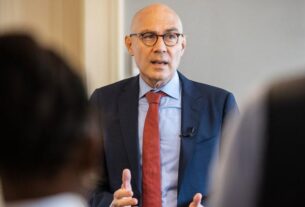Now entering its 10th year, the BBSRC Fellowship Scheme has become a cornerstone for supporting emerging bioscience leaders, offering early-career researchers a unique opportunity to pursue independent research.
From unravelling the genomic secrets of timekeeping in mammals to nitrogen fixation in the human gut, our Fellows will tackle challenges that extend the frontiers of bioscience knowledge and application.
A commitment to innovation and leadership
Dr Robert Hardwick, Interim Associate Director for People, Talent and Culture at the Biotechnology and Biological Sciences Research Council (BBSRC), said:
We are immensely proud to support these fifteen outstanding researchers through our Fellowship scheme.
Their projects not only demonstrate remarkable scientific promise, but also the potential to address pressing global challenges.
With BBSRC’s support, they are well-placed to lead innovative and impactful research.
This latest investment underscores BBSRC’s firm commitment to fostering the next generation of scientific leadership in UK bioscience.
I extend my congratulations to our new fellows and look forward to seeing where your curiosity and dedication will lead you.
Meet the Fellows
Maria Luisa Jabbur, John Innes Centre
Prokaryotic photoperiodism: from molecules to evolution
Lizbeth Sayavedra, Quadram Institute
Nitrogen fixation in the human gut by sulphate-reducing bacteria
Priscilla Tng, The Pirbright Institute
Understanding differences in host responses to African swine fever virus
An-Shan Hsiao, University of Birmingham
Protein disorder in crop stress adaptation
Ruth Carmichael, University of Exeter
Organelle teamwork: understanding how peroxisomes and mitochondria communicate in neuronal cell function
Hannah Donnelly, University of Glasgow
Ageing slow: modelling ageing in secondary lymphoid organs in vitro
Martina Foglizzo, University of Leeds
Structural and molecular mechanisms of the 55 linear covalently closed ATPase complex and its function in DNA replication
Alexander Ware, University of Nottingham
Single-nuclei sequencing whole aquatic plants to reveal novel nutrient transport mechanisms
Poonam Mehra, University of Nottingham
Regulating the flow: uncovering how roots sense and respond to water availability
Akanksha Bafna, University of Oxford
Investigating the genomic mechanisms mediating daily timekeeping in the suprachiasmatic nucleus in mammals
Simone Ferrari Toniolo, University of Oxford
Neuronal mechanisms for social information processing
Jason Wilson, The University of Sheffield
Structural characterisation of bacteriophage proteins involved in host hijacking of enterococcus species
Jing-Yi Jeng, The University of Sheffield
Understanding the mechanisms underlying noise-induced damage of hair cell ribbon synapses
Samuel Wilkinson, University of York
Deciphering plant stress memory: the exploration of how DNA methylation and the rhizosphere microbiome control stress memory in plants
James Ronald, University of York
The need for speed: understanding the importance of different ELF3 nuclear localisation mechanisms
BBSRC’s Discovery Fellows are not just conducting research. They are pioneering the future of biosciences, one discovery at a time.
Success stories from our Fellows
Dr Chris Morgan exemplifies the impact of being awarded a BBSRC fellowship.
In 2021, he embarked on pioneering research into the effects of climate change on plant meiosis, with a focus on Arabidopsis species.
His research during the three-year fellowship has not only advanced our fundamental understanding of biological processes, but also holds promising implications for enhancing the resilience of crops to climate variations.
Skills, experience and visibility
Dr Chris Morgan said:
A BBSRC Fellowship provided me with the generous funding and intellectual freedom to pursue my own independent research questions and carve out my niche within my research field.
Importantly, it also equipped me with the skills, experience and visibility to take the next step in my career and secure a fully independent position by the end of the Fellowship’s three-year duration.
Today, Chris is a Group Leader at the John Innes Centre, where he leads a team working in the field of cell and developmental biology.
The Morgan Group integrates cutting-edge super-resolution imaging techniques with genetics, genomics and biochemistry to explore meiotic recombination in Arabidopsis and wheat.
Their collaborative approach, working alongside experts like mathematical modelers, enables them to tackle complex biological questions with innovative solutions.
Join a community of visionaries
Our fellowships are designed for ambitious early-career researchers aspiring to make substantial contributions to their fields.
A PhD isn’t essential, but a bold vision for the future is.
Top image: Credit: LL28, E+ via Getty Images



